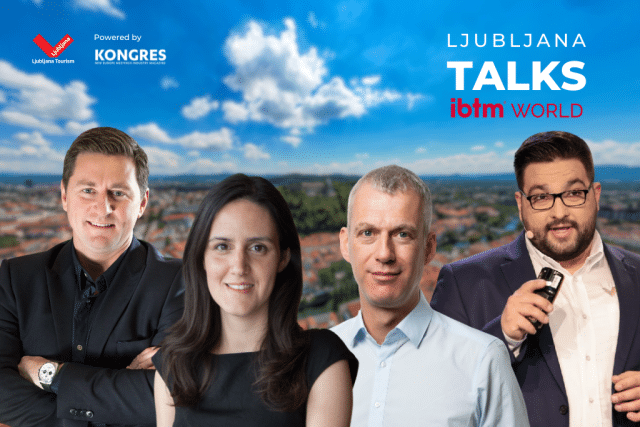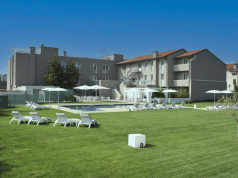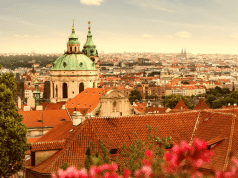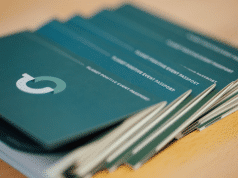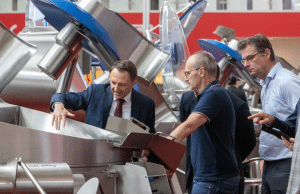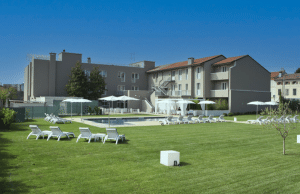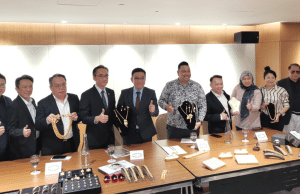The first day of Ljubljana Talks at IBTM World in Barcelona was a whirlwind of discussions led by different experts in the events industry.
Each speaker offered valuable insights, giving us a peek into various aspects of the industry. As we gear up for tomorrow, more intriguing discussions are expected from new speakers that promise to add depth and excitement to our understanding of the event world.
The first speaker was Jimena Gomez de la Flor.
Jimena passionately explored the ever-evolving landscape of the flavors industry and the crucial role that associations hold in aligning these trends with policymaking. She pointed out the somewhat slower integration of AI within associations, highlighting the pressing need for a more comprehensive understanding and effective utilization of this transformative technology.
Delving into the challenges of communicating about flavors, Jimena proposed leveraging AI as a powerful tool for ensuring accurate and engaging public education. Her emphasis on sustainability and the need for regulated AI underscored the potential positive impact with responsible oversight.
She eloquently emphasized the timeless essence of human touch in the art of flavor creation, even as AI aids in analysis. Jimena envisioned sustainable events as not just environmentally conscious but also deeply collaborative and impactful.
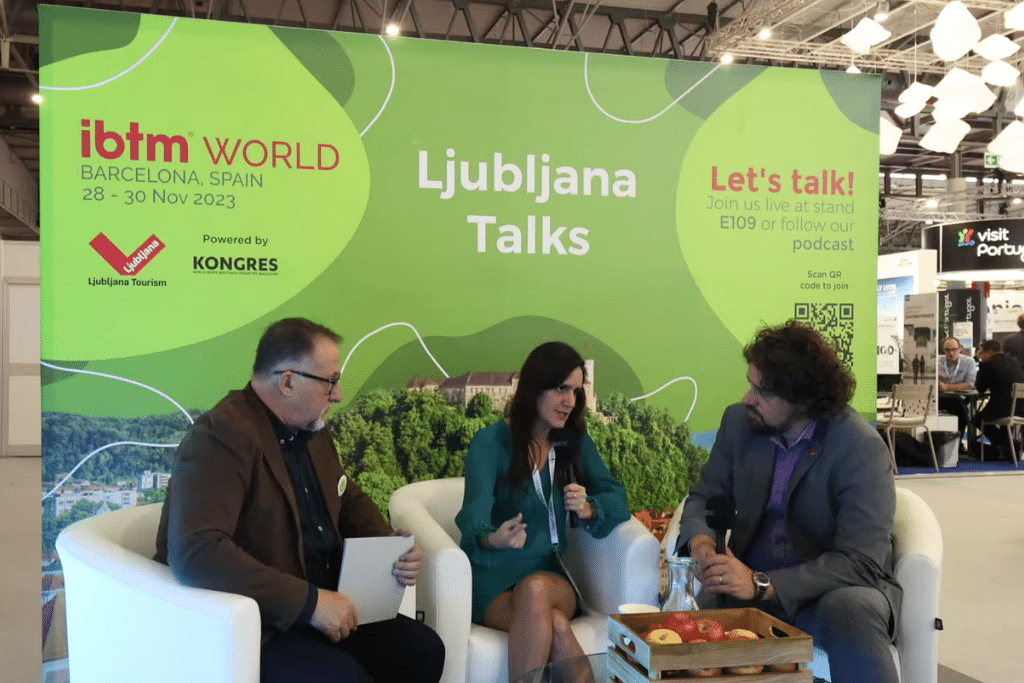
Martin Boyle, the second speaker, was talking about the importance of education. He explained the concept of the IAPCO Edge seminars that are now rotating around the Europe, but also in Asia Pacific and Latin America, so there are six different Edge seminars across the globe.
One of the most important IAPCO gatherings is still the General Assembly, next one taking place in Ljubljana in 2024.
Martin explained: “I think the cultural experience we’re going to have in Ljubljana is going to be really deep and meaningful to people. Especially our international community, people that are coming from Australia, New Zealand, Asia, Latin America.. they want to experience the culture and that personality that’s within a city. The education that they expect is quite high level and very strategic. Ljubljana team put together for us very interesting programme bringing their expertise, their opinions, their valued education and knowledge to our community so that we can learn what’s going on in their world, and then apply some of their learnings to us and our organizations. We are really looking forward to it.”
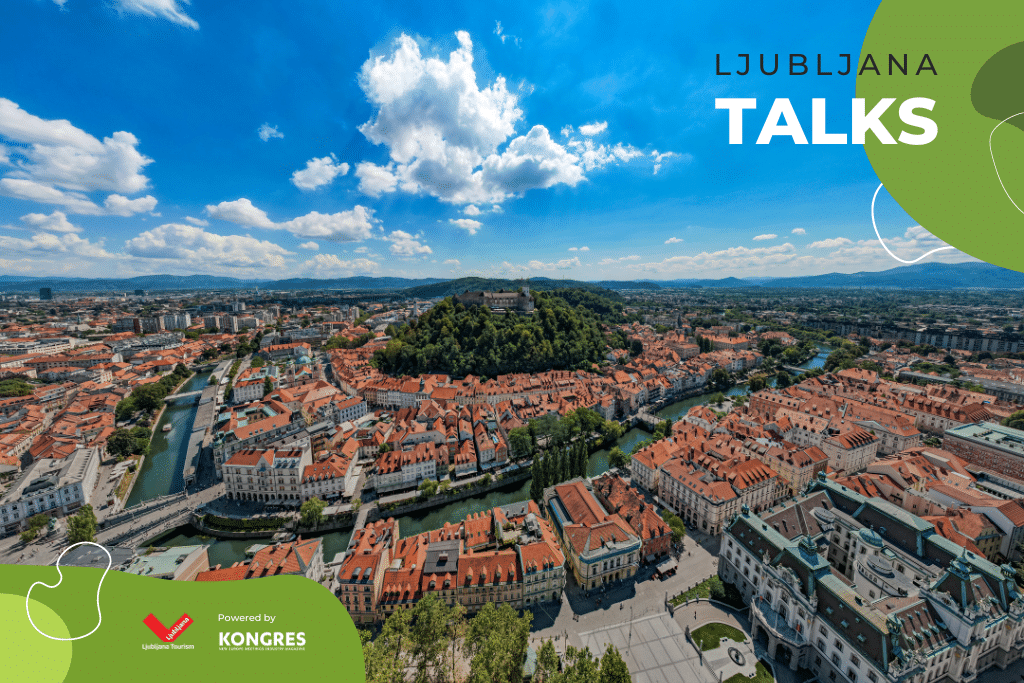
Afterwards, Janos Fazakas highlighted event production’s problem-solving nature, emphasizing that learning stems from real-time challenges. Safety emerged as a priority during unexpected crises, advocating for proper event insurance and attendee well-being over event continuity.
He addressed the industry’s changing demographics, emphasizing adaptability and flexible working hours. Janos discussed the absence of formal event education, sharing plans to establish an educational platform. Budapest’s competitiveness in the events market was highlighted, emphasizing its infrastructure, suppliers, and cultural richness.
He shared his fondness for the Valley of Arts festival in Hungary, noting its positive impact on mental health. As for futuristic aspirations, he entertained the idea of organizing space events in the coming decades.
After the break, Ljubljana Talks welcomed Kai Hattendorf. Conversation pointed out some very interesting topics like exhibition industry evolution, association trustworthiness, the future of trade shows post-pandemic, digitalisation and sustainability in the exhibition industry.
Kai stated: “I think the pandemic gave us a great opportunity to actually see the transformation that we have from one show floor to the next in a much more condensed way. If you compare pre-pandemic shows to the post-pandemic we have certainly become more digital. We’ve become more focused on the individual at the show. And the overall experience has changed a lot, so we probably don’t even notice the degree to which we are evolving and changing as an industry. We just do it. In terms of sustainability, Kai Hattendorf explained that is easy to measure the multiplicative effects of the exhibitions and the carbon footprint, while the intellectual and social impact are the most difficult ones to measure.
The big thing for the next two to three years is, and will remain our answer to the climate crisis. If we don’t succeed, and self-regulating us and finding the right approach, we will be regulated. If we don’t manage to present ourselves as part of the solution with a meeting place in the marketplace that we build it we can’t make people understand that people coming together for one event generates a footprint that we can manage. But it is a way smaller footprint than decentralized meetings everywhere around the world. We need to make these points and we need to be clear that we are part of the solution not part of the problem.”
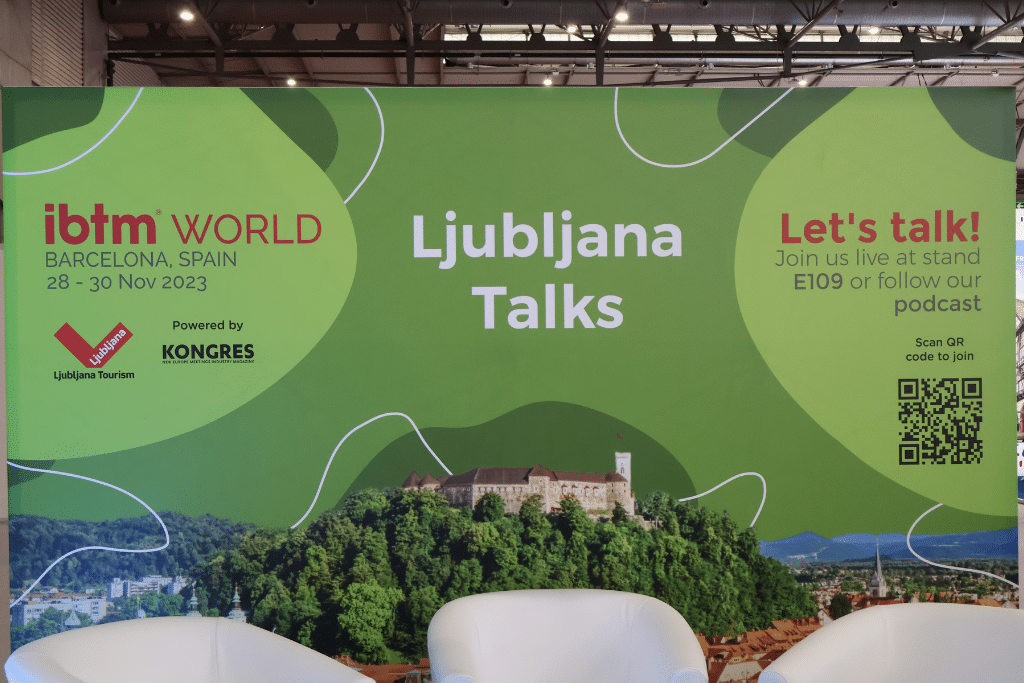
Main topics in the Ljubljana Talks with Angeles Moreno were industry challenges and expectations, design thinking and its impact on problem-solving.
Angeles has been in the meetings industry for more than 17 years, currently being a country manager for Spain at the AIM group. She explained that strategic and desing thinking is her formula for success:
“Strategic thinking, very powerful management, which has to be very much aligned and engaged with a strong value proposition, where everybody knows what is the purpose of our business and we go in that direction, and we don’t lose focus.”
Design thinking helps her to think before act, prototyping and getting to understand fully the problem and also the people, stakeholders and the different perspectives. Think before you act, is what she learnt through design thinking.
Angeles believes that AI will help us enormously into being more excellent, more efficient. With the help of AI we can improve security and data management, so we can be more personalized in the way we give our services. But we still have to offer an additional value that the machines cannot offer.
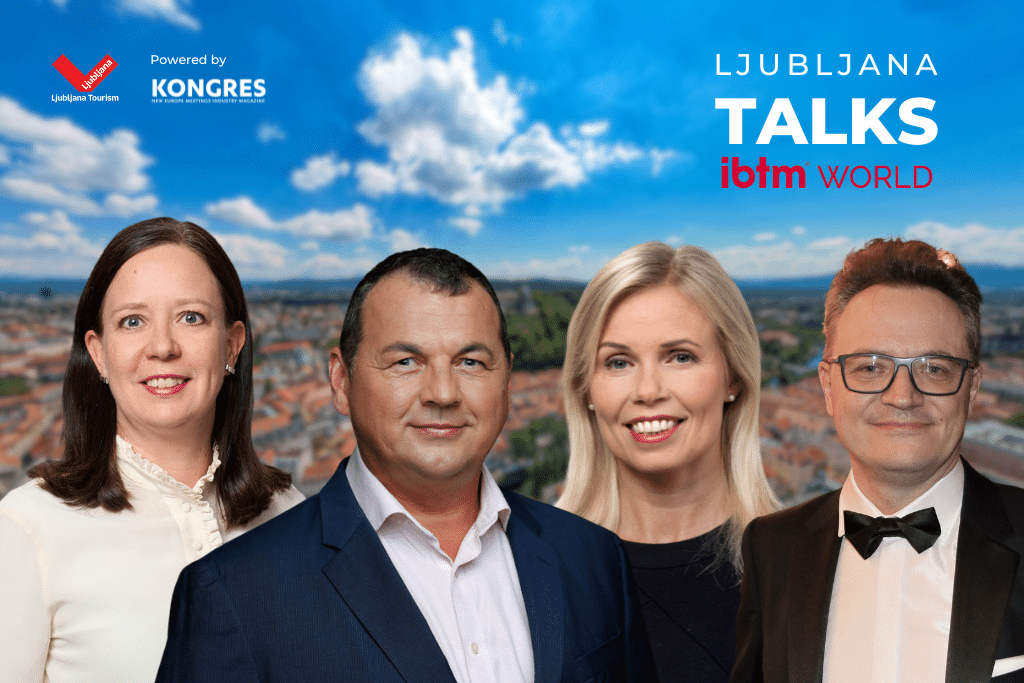
For the closing of the first day of Ljubljana Talks, a group of “Baltic Tigers”:
Heini Etsola from Helsinki Convention Bureau, Kadri Karu from Estonian Convention Bureau, Jaroslaw Marciuk from Poland Convention and Aigars Smiltans, Riga Convention Bureau.
Main topic of conversation was the growth and visbility of Baltic and Nordic destinations. Gorazd and Jan asked each of them which are the projects in the last year that they are most proud of.
Here are their answers:
Heini Etsola: “I’m proud of lot of things in Helsinki. It’s stunning destination, an excellent destination for all kinds of meetings and events. And what makes me like super proud is how sustainable destination we are. Just about a month ago, we were ranked number fourth in this global destination Sustainability Index. Last time we were number 12. So that shows the speed how fast we are advancing with these issues. And we won’ stop before we are the number one.”
Kadri Karu: “Sustainability is also one thing that we are proud of, especially this year, that our agencies have really started measuring the carbon footprint and actually implementing practical tools to make events more sustainable, creating more awareness and also winning international awards with their projects. These are actually tangible case studies that other clients, the whole industry can use and also inspiring suppliers with this practices.”
Aigars Smiltans: “We are proud of our people, who are the main driving force behind. These are local people who are proud of their destination, so they know how to present the destination and then also to do the job.”
Jaroslaw Marciuk: “We are especially proud of our Polish people and people who are working in our industry that are creative and passionate about what they do. And also ICCA congress in Krakow, which was held last year.”


